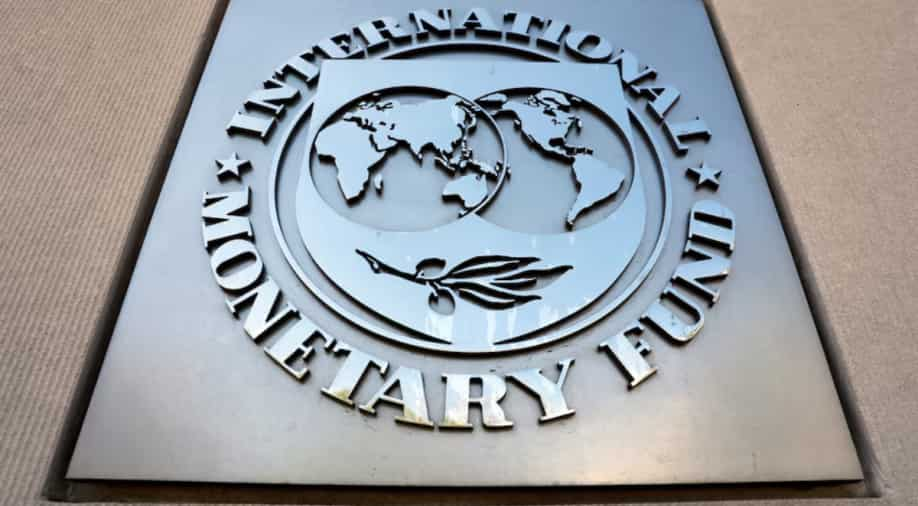Global public debt is set to surpass $100 trillion this year, signalling urgent calls for stronger fiscal measures from major economies, according to a recent report from the International Monetary Fund (IMF). As governments continue to grapple with the economic fallout from the Covid-19 pandemic, the rising tide of debt is becoming increasingly concerning, with projections indicating that global debt could approach 100 per cent of world GDP by the end of the decade as elaborated in a recent report by the Financial Times. The IMF's Fiscal Monitor report highlights that government borrowing has surged as countries adopt expansive spending strategies aimed at stimulating economic growth. The United States and China are identified as key drivers behind this increase, with their respective debts contributing significantly to the global total. The report notes that the ratio of public debt to GDP has risen sharply, now sitting approximately 10 percentage points higher than pre-pandemic levels. Countries such as the UK, Brazil, France, Italy, and South Africa are among those expected to see continued increases in their debt levels. The IMF warns that without decisive action, future debt levels could exceed current projections, necessitating substantial fiscal adjustments to stabilise or reduce borrowing. The fund advocates for well-designed fiscal policies that not only support economic growth but also protect vulnerable households during this challenging period. As inflationary pressures begin to ease and central banks like the US Federal Reserve and the European Central Bank lower borrowing costs, the IMF suggests that now is a critical time for governments to rebuild their fiscal buffers. The report emphasises that delaying necessary adjustments will only worsen future challenges, calling for cumulative fiscal adjustments ranging from 3 per cent to 4.5 per cent of GDP globally. The IMF's recommendations include re-prioritising government expenditures, implementing entitlement reforms, increasing revenues through indirect taxes in low-taxation areas, and eliminating inefficient tax incentives. Additionally, it highlights that ongoing government spending related to transitioning to greener energy sources, coupled with challenges posed by ageing populations and security concerns, is likely to add further pressure on public finances in the years ahead. This report comes at a pivotal moment as China embarks on a substantial fiscal stimulus plan aimed at rejuvenating its economy. Meanwhile, in the United States, upcoming presidential election campaigns are projected to significantly swell federal debt by trillions of dollars. Concerns over escalating borrowing levels have already triggered a sell-off in government bond markets across various countries, including the UK and France. In response to these mounting pressures, UK Chancellor Rachel Reeves is expected to use her upcoming Budget announcement to adjust the definition of public debt within the country’s fiscal rules, potentially allowing for increased borrowing. As global economies navigate these turbulent waters, the IMF's findings serve as a stark reminder of the urgent need for comprehensive fiscal strategies that can address both current challenges and future sustainability. A journalist, writing for the WION Business desk. Bringing you insightful business news with a touch of creativity and simplicity. Find me on Instagram as Zihvee, tr None
Popular Tags:
Share This Post:

Alibaba claims its new AI translation tool outperforms Google and ChatGPT
October 17, 2024
Amazon goes nuclear: investing over $500 million to develop small modular reactors
October 17, 2024What’s New
Spotlight
New Zealand inflation declines to lowest rate since 2021
- by Sarkai Info
- October 16, 2024
Today’s Hot
Global public debt to pass $100tn this year: IMF Report
- By Sarkai Info
- October 16, 2024
Featured News
Latest From This Week
China's ministry of finance takes bold steps to address debt and revive economic growth
BUSINESS-ECONOMY
- by Sarkai Info
- October 15, 2024
Fed governor Waller emphasises caution in potential interest rate cuts
BUSINESS-ECONOMY
- by Sarkai Info
- October 15, 2024
World Bank reports that 26 poorest countries are in worst financial shape since 2006
BUSINESS-ECONOMY
- by Sarkai Info
- October 14, 2024
Subscribe To Our Newsletter
No spam, notifications only about new products, updates.




























